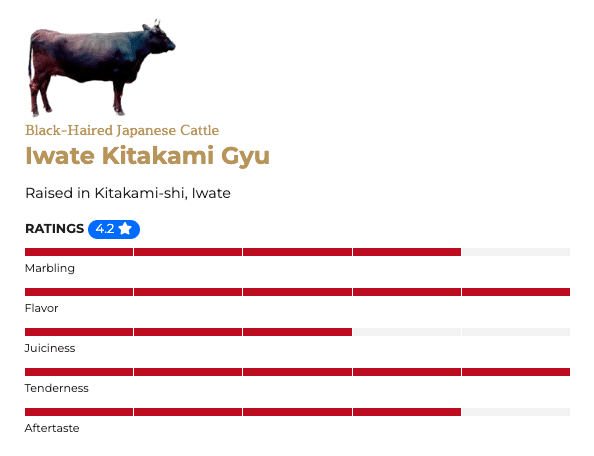Discovering Iwate Gyu: The Hidden Gem of Japanese Wagyu
When it comes to Japanese Wagyu, Kobe beef often takes the spotlight. However, for true beef enthusiasts, Iwate Gyu—a premium Wagyu from Japan’s Iwate Prefecture—is a must-try. Known for its elegant marbling, mild umami, and sustainable farming practices, Iwate Gyu offers a culinary experience that goes beyond its Japanese origins. Want to see how it compares to other brands? Click here to find out!
What Makes Iwate Gyu Unique?
Iwate Gyu comes from the Japanese Black cattle breed and is celebrated for its tenderness and detailed marbling. Notably, it rarely ranks below A5, which is Japan’s highest beef grade. In fact, Iwate Gyu has won the top prize 11 times at Japan’s National Grading Competition, highlighting its superior quality.
The beef’s exceptional taste stems from the pristine environment of Iwate Prefecture. The region provides fresh mountain air, mineral-rich water, and locally sourced feed. These factors contribute to the clean and balanced flavor of Iwate Gyu. Moreover, the cold climate and dedication to animal welfare create a low-stress environment, which enhances the meat’s overall quality.
Ways to Enjoy Iwate Gyu
While traditional Japanese dishes are ideal for Iwate Gyu, it works wonderfully in global cuisines too. Simply replacing the usual protein with Wagyu can transform any meal. For example:
- Tartare (French): The mild umami and softness of Iwate Gyu bring a new depth to steak tartare.
- Beef Wellington (British): Using Iwate Gyu makes this classic dish richer and more luxurious. The flavors of the beef, duxelles, and pastry come together beautifully.
- Tacos (Mexican): Thinly sliced and grilled, Iwate Gyu adds a gourmet twist to tacos.
Sustainable Farming: Iwate Gyu and the Circular Economy
Iwate Gyu is produced with sustainability in mind, following a “circular economy” model. This approach emphasizes reducing waste, conserving resources, and protecting the environment. Here are the key practices:
- Locally Sourced Feed and Recycling: Farmers use rice straw, grains, and food byproducts from the region. This reduces waste while enhancing the flavor of Iwate Gyu.
- Water and Energy Conservation: Efficient water recycling and energy practices ensure minimal environmental impact while maintaining the health of Iwate Gyu cattle.
- Reduced Emissions and Local Support: By sourcing and processing locally, Iwate Gyu limits transportation emissions. This also strengthens the regional economy and supports small-scale farmers, preserving local traditions.

